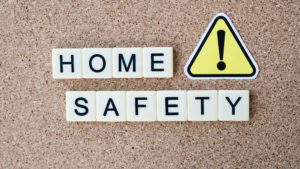If you plan to rent your home there are many things to consider before putting an ad in the local paper or coffee shop.
One of them is liability.

Protect your rental property with landlord insurance.
Landlord insurance is something you need to investigate in order to properly protect yourself (and your assets) in the event of a mishap. Whether it’s a fire, robbery, injury, flood or other disaster, typically a homeowner’s normal insurance policy won’t cover the loss to either your property or your possessions.
Homeowner’s insurance typically covers owner-occupied, single family residences. But if you’re considering renting your property for a long period of time it’s imperative that you do some research into other coverage.
Protecting Yourself As A Landlord
A landlord insurance policy is a lot like a homeowner’s policy in that it covers your property against damage or other event. Landlord insurance may include:
- The usual events such as fire, flooding, wind or hail damage and other disasters.
- Other structures located on your property such as garages or sheds.
- Contents of your home or other structure. This doesn’t mean your tenant’s property but anything on the premises that belongs to you such as furniture, tools or other equipment.
- Lost rental income. This is a critical part of landlord insurance. If you can’t rent your property because of damage this can cover up to 12 months of lost income depending on your policy.
- Legal fees and liability protection. If someone is injured on your property the landlord may be liable, depending on the circumstances. Most policies cover the landlord’s legal fees should a tenant or other visitor file a lawsuit. It may also pay out in the event of a judgment against a landlord and may also protect other assets or personal belongings. Medical expenses of the injured party may also be covered.
What else should a homeowner/landlord be aware of?
Landlord coverage will generally cost around 25% more than a standard homeowner’s policy but this varies state to state. Several factors will influence the price such as size of the home, building costs/replacement materials, crime rate, or the frequency of natural disasters such as hurricanes. The original condition of your home will also set the price for insurance.
It’s also smart to protect yourself in other ways. Requiring that any tenants purchase renter’s insurance will not only protect you but also your tenant. Go over your insurance policy with your agent each and every time your tenant changes. This may make you aware of any changes in coverage or advise you of any other requirements of your tenant.
Ask your insurance agent about an umbrella policy while you’re at it. This policy goes above and beyond the limits of homeowner’s and landlord insurance. You may be able to purchase an additional $1 to $5 million in liability protection designed to activate in case the limits of your other policy is reached.
Renting your home is a great idea if you know what you’re doing and how to protect yourself. Proper insurance coverage is critical and you shouldn’t wait for a disaster to tell you you’re not protected. For all other landlord duties you might want to consider hiring a property management company such as National Property Management Group. If you’re in Kansas City or Miami we can look after your property, find excellent tenants, cover any maintenance issues, and take the headache out of being your own landlord.

 First & Last Name
First & Last Name